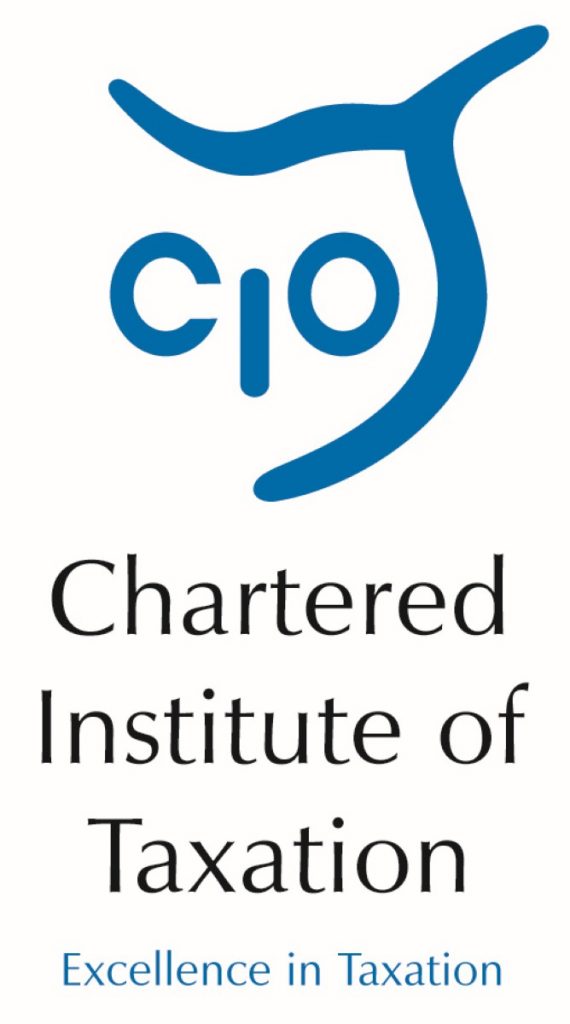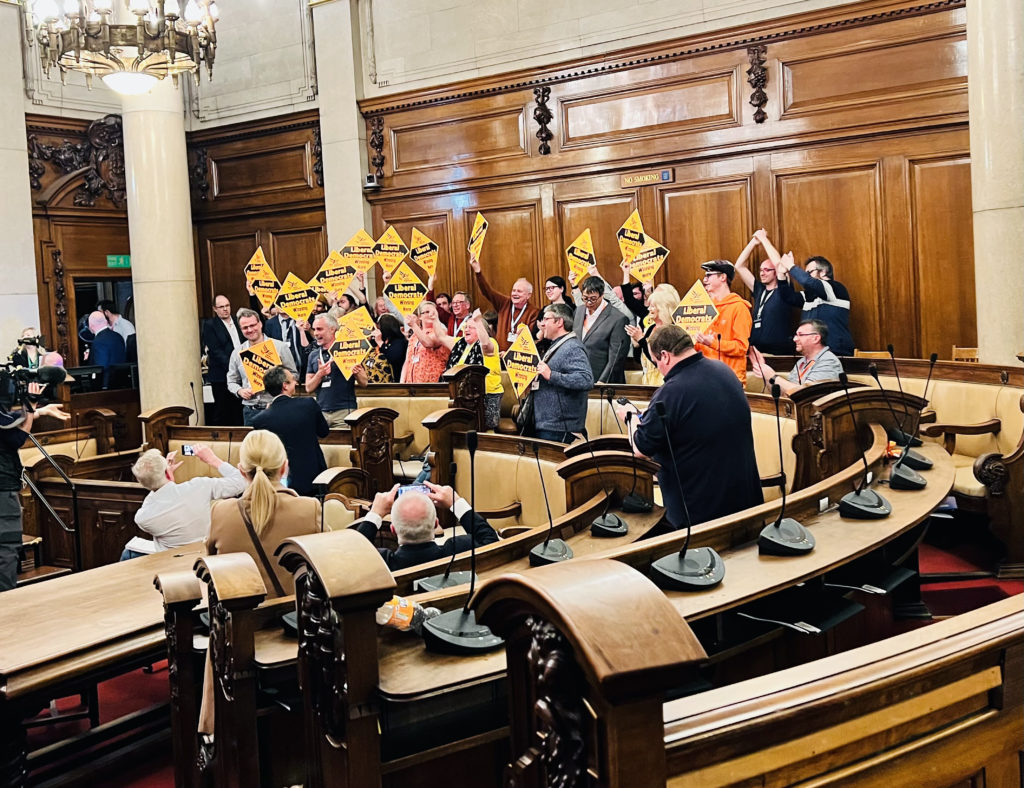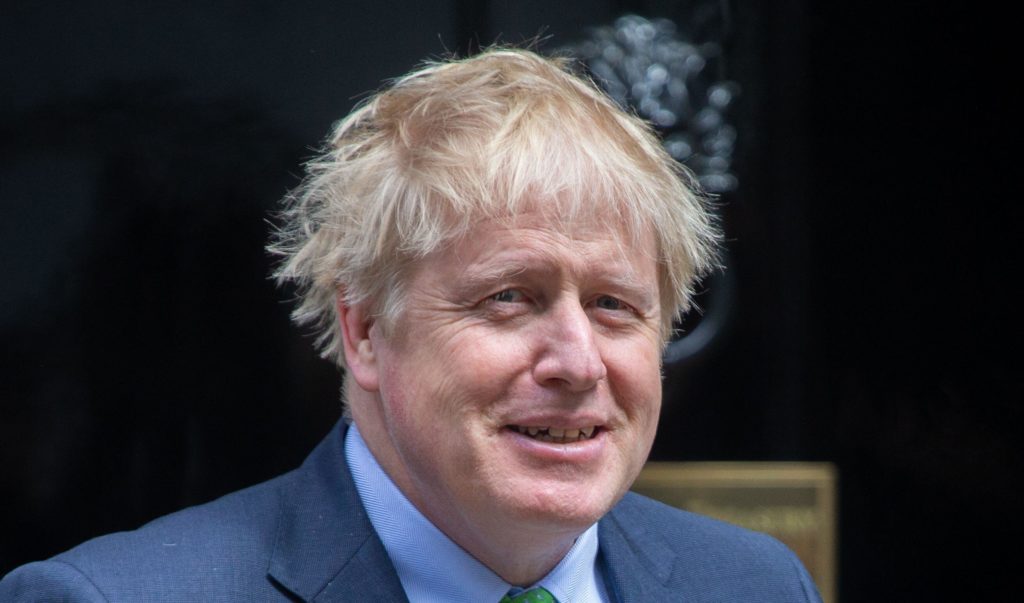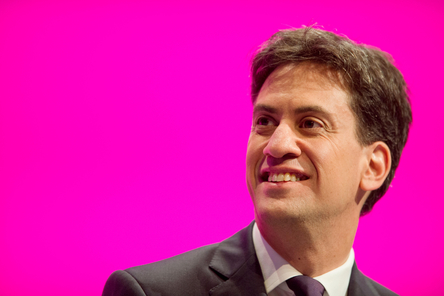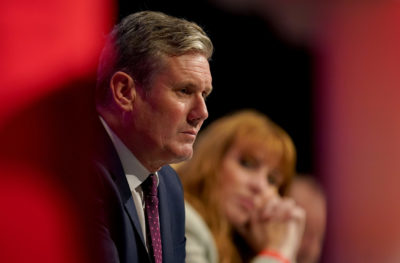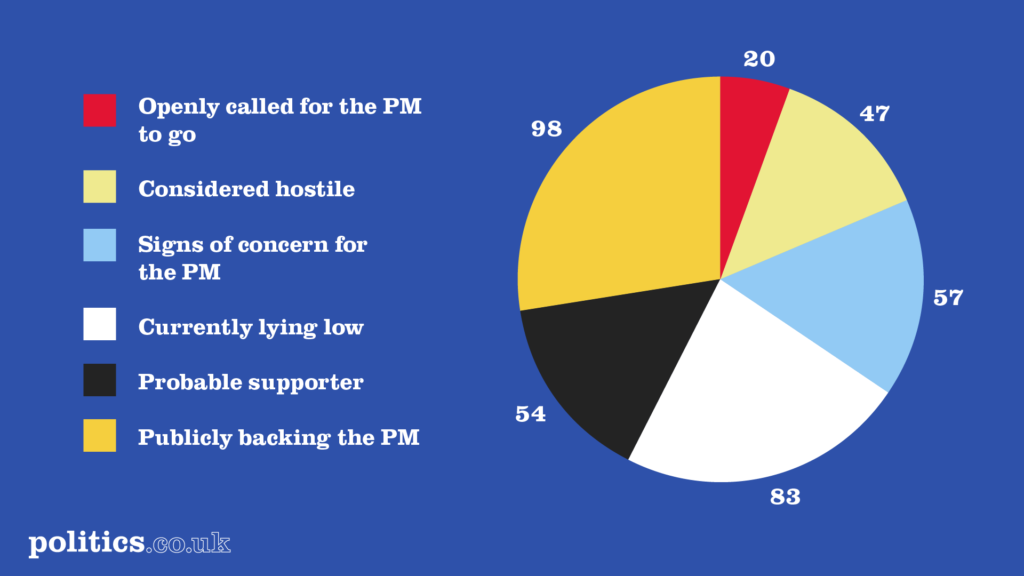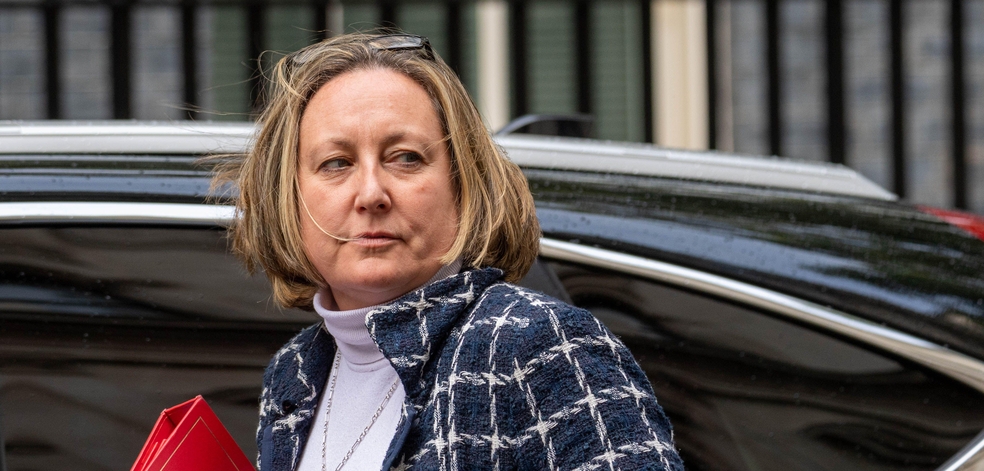What are MPs Paid?
MPs are currently paid £81,932, a figure which is set to rise to £84,000 from April 2022 (rising by 2.7% in line with average public sector pay rises).
The basic salary for an MP was thus just under three times more than the 2021 national medium salary of £31,461 in the United Kingdom.
Polling by the fim Redfield and Wilton in February 2022, showed that 64% of people opposed MPs receiving a payrise in April 2022, compared to 16% who supported the proposals.
Responsibility for the regulation and administration of MPs’ pay and expenses was transferred to the Independent Parliamentary Standards Authority (IPSA) following the 2010 General Election. In 2011, IPSA was also made responsible for determining MPs’ pensions.



MPs earn just under three times more than the average salary.
In 2020, IPSA recommended a 4.1% increase (around £3,300 per year) in MP’s salaries.
However, Prime Minister Boris Johnson opposed this pay-rise, responding that he had already set a pay freeze on existing ministerial salaries. His objection was seen in the context of the government’s plans to set pay freezes on an additional 5 million public sector workers in response to the Covid-19 crisis.
In April 2022, MPs were set to
Should MPs be paid more?
The case for paying MPs more
It is argued that the salary paid to a Member of Parliament directly correlates with the calibre of people who decide to enter, and remain, in Parliament.
When MPs salaries are compared with those at the higher echelons of the private sector, and even the public sector, it is claimed they are insignificant.
For example, in 2019, the Head of the Metropolitan Police earned £278,563. Likewise, a quarter of Head Teachers at secondary schools were reported to earn over £100,000.
It is argued that the comparatively lower salary of politicians is likely to deter high calibre workers from entering the political field.
There is also concern that such a, supposedly insubstantial, salary, encourage MPs to pursue second jobs, which then likely detract them from their primary duties. It is argued that if MPs were paid more, these second jobs would be unnecessary.
It has also been suggested that MPs could be paid on the basis of performance-assessed salaries. This may relate to their activities in Parliament, or their ability to deliver. It has been mused that this would incentivise MPs to effect noticeable change in their local constituencies.
Arguments against higher salaries for MPs
Opponents of higher salaries for Members of Parliament take issue with the notion that higher pay is necessary to acquire candidates from differing backgrounds to enter politics.
They note how the former Chief Executive of the ASDA supermarket (Archie Norman) and the former Director of Public Prosecutions (Sir Keir Starmer) were both prepared to give up these roles to become Members of Parliament.
Instead it is argued that higher MP salaries actually attract individuals into politics for the wrong reasons, namely the financial perks of the role, as opposed to a public service ethos. It is noted how, with the exception of those in senior positions, the majority of workers in key public sectors, such as healthcare and teaching, receive significantly lower salaries than Members of Parliament, and yet pursue these careers nonetheless. The underlying argument is that MPs, as public servants, should be subject to the same standards as the rest of the sector.
It is also remarked that MPs are already comparatively well paid compared to the general population and that the “all in” MP Package is substantially more generous than in most professions. It is noted that MPs have access to an attractive pension scheme, and are further entitled to claim expenses on a wide range of goods and services, such as travel, accommodation and office equipment.
The 2009 MP Expense Scandal
In 2009, the House Commons was hit by a major scandal when the Daily Telegraph newspaper published information about MPs’ expenses claims that it had obtained from a leaked computer disc.
The paper began its drip-drip publication on 8th May with details of apparently erroneous claims made by Cabinet ministers over the previous four years. This was followed by similar revelations about Shadow Cabinet Ministers and MPs from across all parties.
Members of Parliament were accused of avoiding capital gains tax, claiming mortgage payments on a mortgage that had been paid off, and ‘flipping’ houses – i.e. claiming costs for refurbishing a second home as allowed, then changing the designation of their main home to their second home in order to claim costs again on that property.
Other costs funded by taxpayers’ money were shown to include £2,000 for the Conservative Douglas Hogg to have his moat cleared, and £1,600 for Sir Peter Viggers’ now infamous duck house. There were also risible claims for such things as a single light bulb, a chocolate bar and a bath plug.
More seriously, lengthy criminal investigations into some MPs expenses were then launched by Scotland Yard. These investigations focused on expense claims which were deemed to have been bogus, involving the creation of false paperwork.
Five Labour MPs (David Chaytor, Jim Devine, Elliot Morley, Eric Illsey and Dennis MacShane) were subsequently prosecuted, found guilty, and subsequently actually imprisoned in relation to their expense claims.
The consequences of the 2009 MPs expenses scandal were significant. Many MPs pointed to how their claims had been made according to the rules and accepted by the Commons fees office. However the public’s trust in politicians and the parliamentary system reached an all-time low. Some MPs were de-selected by their local parties, others resigned or decided not to stand again at the next election, while many repaid the expenses they had claimed.
Following this scandal, the Independent Parliamentary Standards Authority (IPSA) was created under the Parliamentary Standards Act 2009. This Act and the subsequent Constitutional Reform and Governance Act 2010 transferred powers to IPSA to determine and pay MPs’ salaries, pensions and expenses.
The system of MPs expenses was also overhauled. Non London MPs may now claim for up to an annual limit of £19,900 for accommodation and related utility costs. Alternatively, MPs may claim for hotel accommodation up to a maximum of £130 per night in the London area and £105 elsewhere.
The post of Compliance Officer for IPSA was established by the Parliamentary Standards Act 2009 (as amended by the Constitutional Reform and Governance Act 2010). The role of the Compliance Officer is to carry out an independent investigation if he has reason to believe an MP has received an expenses payment to which he or she is not entitled. Former police chief superintendent Peter Davis was appointed as the first Compliance Officer for IPSA in December 2011.
A History of Parliamentary salaries
Despite attempts throughout the late 18th and 19th centuries to secure salaries for MPs, it was not until 1911 that this was agreed. An allowance of £400 per annum was granted by a vote of 265 to 173, due largely to pressure from the nascent Labour Party.
Although the idea the idea of paying people for a career in politics was strenuously contested at the time, the move was also seen as a critical step in both the democratisation and “professionalisation” of politics. With Parliamentary work being paid, it was no longer necessary to be an individual of independent means to seek elected office.
This wage for politicians was reviewed irregularly in its early years, and was reduced in 1931.
In 1963, the Lawrence Committee was set up to review payments to MPs and Ministers more regularly. Its first recommendations were accepted by Parliament in 1964, increasing the Parliamentary Salary from £1,500 to £3,250. Pensions for MPs were provided for the first time by the Ministerial Salaries and Members’ Pensions Act 1965.
In 1970, the Top Salaries Review Body was charged with examining MPs’ pay, and it reported roughly annually from 1971 to 1992. In 1996 the Senior Salaries Review Board (SSRB) took over that responsibility.
In 1996, MPs voted to adopt the SSRB’s proposals of a 26 per cent pay-rise (to around £43,000), and adopted procedures for automatically uprating pay without the need for a separate resolution. That year, moreover, Ministers were permitted to claim the full Parliamentary Salary for the first time, this having been resisted previously on the grounds that Ministerial office impeded a Member’s work as an MP.
A further major review of the system occurred in 2001-2002, when the focus of the SSRB reports concerned Members’ pensions and allowances. Significant changes were made to both. In particular, Office Cost Allowances were abolished and replaced by a fundamentally new system of separate allowances.
More controversially, the terms of MPs’ pension arrangements were dramatically improved, providing the option of a 1/40th of salary accrual rate in exchange for higher contributions. A report from the SSRB: Review of Parliamentary Pay, Pensions and Allowances 2007 recommended that Members should be able to opt for a 1/60th accrual rate in exchange for reduced contributions.
In January 2008, Sir John Baker was asked to carry out a review “to examine options and make recommendations for a mechanism for independently determining the pay and pensions of MPs which does not involve MPs voting on their own pay”. He reported back in June of that year with a recommendation for MPs’ pay to be increased each year in line with the previous year’s increase in public sector average earnings. This was intended to keep MPs’ pay in line with the earnings of public sector workers generally.
MPs belong to the Parliamentary Contributory Pension Fund (PCPF) which is managed by trustees and contracted-out of the additional State Pension. A new pension scheme was introduced in 2015, providing benefits based on Career Average Revalued Earnings (CARE) rather than final salary figures.
Although controversial at the time, it is now rarely argued that MPs should not be paid at all, as it is widely accepted that the work of an MP is a full-time job.
Throughout 2021 a number of MPs continued to work in other capacities, whether that is in medicine, the law, and business. A Register of Interests for MPs requires all earnings accrued by members other than through their Parliamentary Salaries to be declared.
In November 2021, following the Owen Patterson affair, Boris Johnson set out plans to prevent MPs from working as paid consultants.
Ministerial Salaries
Ministers receive a supplementary salary in addition to their basic MP’s salary.
Salaries for Ministers were introduced under the Ministers of the Crown Act 1937, and are governed today by the Ministerial and Other Salaries Act 1975, as amended. They are periodically updated through Orders made under the Act.
In May 2015, David Cameron announced that ministerial pay would be frozen at its existing rate. The ministerial element of pay remained unchanged from 2016-2019, but ministers in the House of Commons received increases in their parliamentary pay.
In 2020, Prime Minister, Boris Johnson is entitled to an annual salary of £161,401. This comprised his MPs salary and his Ministerial Salary.
Although not Ministers, the Leader of the Opposition and the Speaker of the House of Commons also receive a top up to their MPs salary. In 2020 Keir Starmer earned £144,649 a year as Leader of the Opposition.
In 2018, the Speaker of the House of Commons earned £154,587.
Statistics
In 2016, an independent survey of 2,000 people revealed that 31% believe that the then MP salary of £77,379 was not enough to encourage high performing individuals to consider a career in politics. The survey found that Green Party supporters were most in favour of offering MPs a pay-rise, with 52% supporting the prospect. The highest opposition to the rise came from UKIP supports, with only 19% of UKIP voters agreeing with the idea of such a raise. [Source – KIS Finance]
In 2015, Members of the Scottish Parliament passed a motion to break the link between MP and MSP salaries. This was to exempt themselves from IPSA’s recommended pay rise of 9%. The Scottish Parliament maintained that any pay rise should be linked to questions of inflation.
https://pukdevelop.wpengine.com/quiz/2021/11/12/81932-do-mps-earn-enough-money/
Notable Quotes
“It is clear that applying the forthcoming official statistic for public sector earnings growth would result in a salary increase for MPs that would be inconsistent with the wider economic data and would not reflect the reality that many constituents are facing this year. The IPSA Board has therefore decided that the salary for Members of Parliament will remain unchanged for the financial year 2021-22”. – IPSA, 2020.
Commenting on Members’ Pay in 2015, the Conservative MP Andrew Bridgen argued that there is now a risk of there being “a race to the bottom where’s it’s just a hair shirt competition,” unless MP pay is improved. Bridgen also noted that “it tends to be people in the cabinet or shadow cabinet who are saying that they wouldn’t take it, and give it to charity” when “they’re on twice as much as a backbencher”.
https://pukdevelop.wpengine.com/news-in-brief/boris-johnson-backs-labours-call-to-ban-mp-consultant-jobs/
https://pukdevelop.wpengine.com/news-in-brief/long-serving-mp-says-desperately-difficult-salary-should-be-increased/
https://pukdevelop.wpengine.com/news/2013/12/09/comment-mps-deserve-a-pay-cut-not-a-pay-rise/

